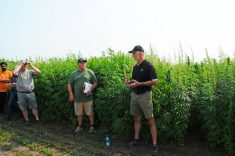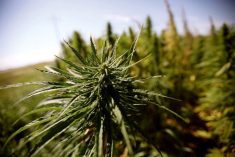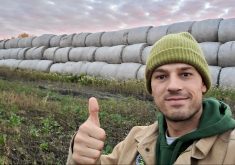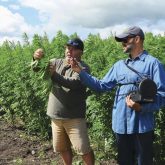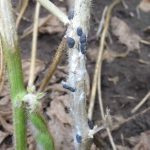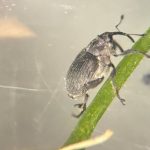The Canadian hemp sector has a new champion to expand its reach.
The Canadian Industrial Hemp Promotion Research Agency has been in the works for years, with a vision to create an organization to spearhead public outreach, bolster hemp’s image and consumer recognition and be a hub for research.
“I think it was about 10 years ago that we started investigating how to get the research and promotion agency set up,” said Don Dewar, a Dauphin-area farmer who will serve as the board chair.
Read Also
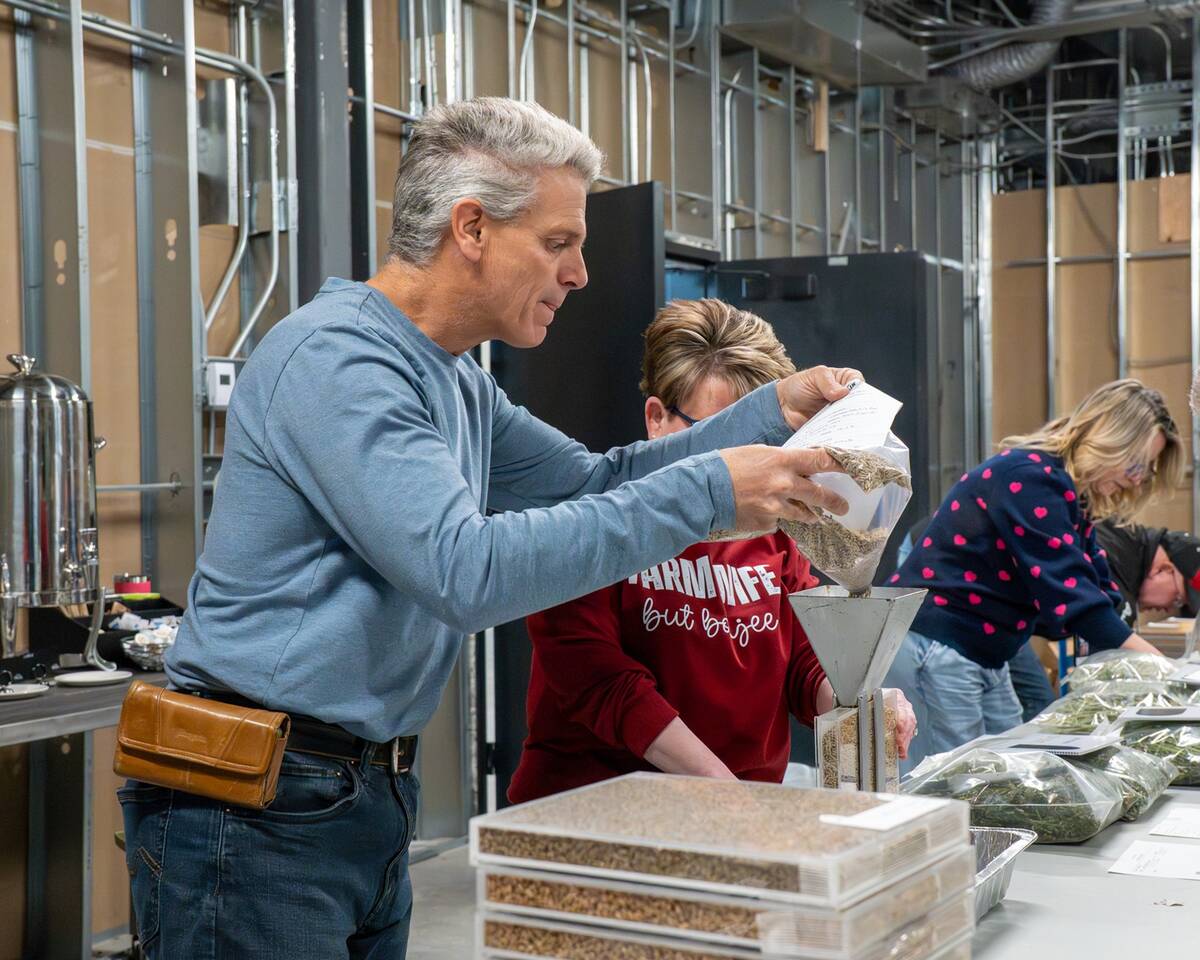
North American Seed Fair continuing a proud 129-year-old agricultural tradition
One of North America’s longest continually lasting seed fairs makes its 129th appearance in southern Alberta.

The agency was launched Oct. 25 and was highlighted Nov. 11-14 during the Canadian Hemp Trade Alliance conference in Montreal.
Why it matters: Canada’s hemp sector is seeking new and consistent markets that will help it grow past its current niche.
The new agency will operate on producer checkoffs. That money will be used for primary research, market development and creation of standards for better trade of hemp products. Clarence Shwaluk, board chair of the Canadian Hemp Trade Alliance, said check-off dollars will come from sales of all industrial hemp products in the country.
“It’s not a lot different than, say, the national pork levy or the beef check off,” he said. “The amount of funds collected will be one half of one per cent of all sales within Canada.
“That small amount will be collected by processors such as the one that I work for,” said Shwaluk, who works for Manitoba Harvest Hemp Foods. “It’s collected from the farmers by companies who are the primary buyers, and then the CIHPRA board will decide how that money is spent to promote the industry.”
Shwaluk said formal approval of the checkoff is a turning point for the hemp industry.
“What it will do is allow mobilization of funds for market development purposes. We do want to have the industry grow.”
The board of directors will consist of producers from across Canada.

Industry footprint
Hemp was legalized in Canada in 1998, and the Canadian Hemp Trade Alliance was founded soon after by several processors and hemp farmers.
It remains a niche crop. Canada planted 55,400 acres of hemp last year and produced more than 24,860 tonnes, according to Statistics Canada. That is equivalent to about 0.35 per cent of Canada’s soybean production, 0.33 per cent of Canada’s barley or 0.82 per cent of it’s oat production.
Of that, most comes from the Prairies. Alberta led the way last year with 20,000 acres, followed by Saskatchewan at 16,100 and Manitoba at 13,400 seeded acres. Quebec also produces the crop.
Hemp reached peak acres in 2019, shortly after cannabis legalization.
“There was a lot of excitement at the time about hemp being grown for extractions, for CBD,” Shwaluk said, citing the nutraceutical that many hoped would provide new marketing opportunities after hemp’s lucrative South Korean market evaporated.
Those hopes were muted following cannabis legalization, when processors ran into logistical issues around extraction and regulation and a learning curve that dampened the attraction of the new market.
“Those acres have dropped off significantly and what we’re left with is hemp grown primarily for food and fibre,” Shwaluk said.
Building crop promotion
The committee behind the new agency includes hemp producers from each province, as well as importers and exporters. The committee realized the project would have to be a national effort, Dewar noted. There weren’t enough hemp growers in any one province to fund a commission and Alberta is the only province with a provincial producers group dedicated to the crop.
Hemp producers were surveyed about the initiative preparatory to applying for a checkoff. That in itself was a challenge, Dewar noted, because privacy issues made it hard to find growers.
“I think we identified about 60 per cent of the growers,” he said. “Ninety per cent of those were in favour of putting the checkoff in place.”
First steps
The new agency expects to work closely with the Canadian Hemp Trade Alliance, said Dewar, especially on research projects. Researchers are now evaluating hemp for use in animal feed, for example.
“It has to go through some trials before we can say it’s safe for animals to eat it without the THC ending up in the meat or milk,” he said.
Hemp contains reduced levels of THC, the compound that causes the high when cannabis is consumed, but it is not THC-free. Canadian regulations state that THC levels in hemp can’t be more than 0.3 per cent.
The feed research is “very close to being finished,” Dewar noted.
Hemp’s role in rotations has also drawn interest. It’s long taproot can pull nutrients that are out of reach of other crops, and “it’s priced competitively to other high revenue crops like canola,” said Shwaluk.
The agency will now sort out its bylaws and finish the legal formalities of its creation before approaching hemp buyers.
“This is a very positive event for our industry,” said Shwaluk. “These checkoffs take a long time to come to fruition. Credit really goes to the people who had the vision to start this several years ago, and this will unlock a whole new set of funding to help promote and advance our industry.”





